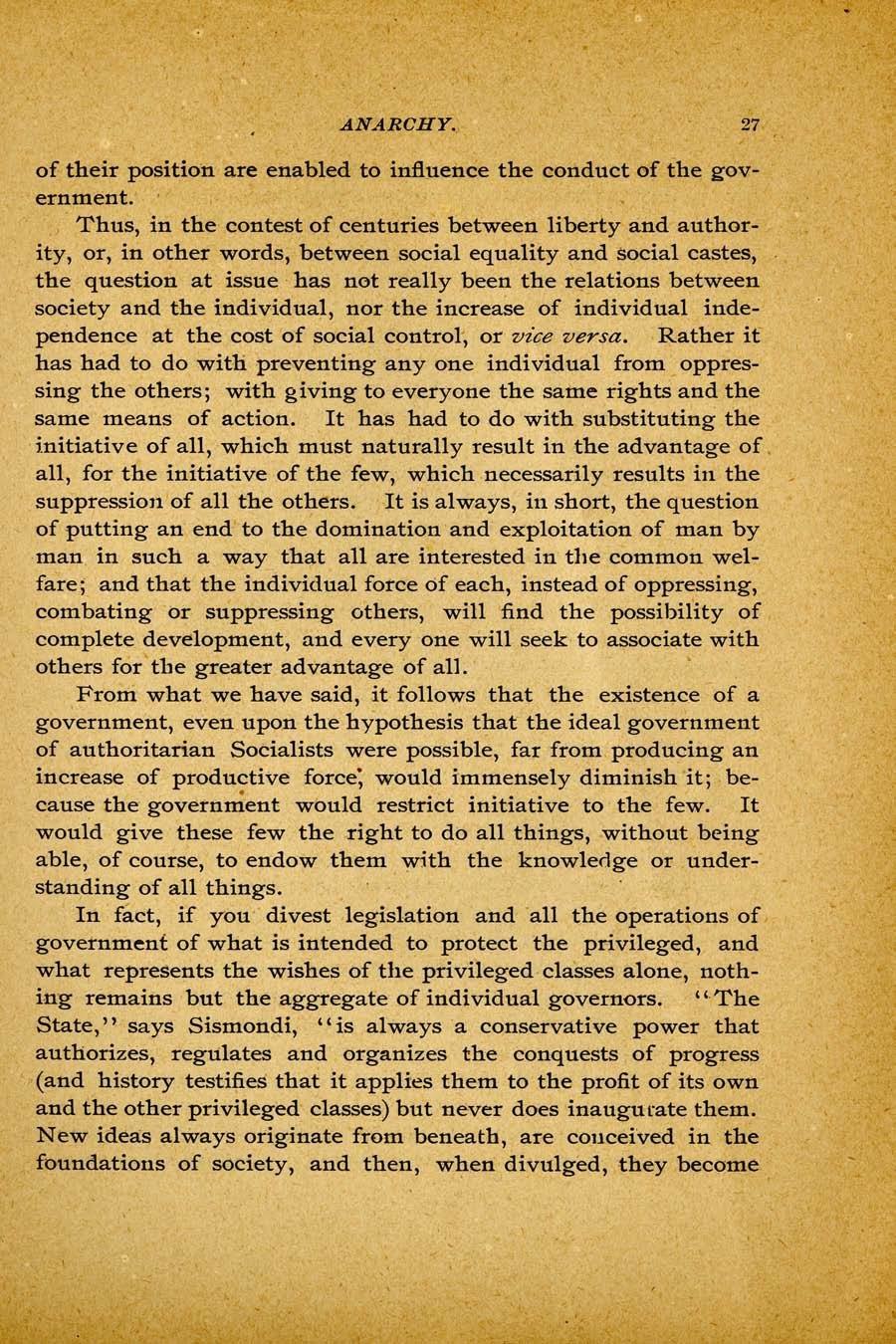of their position are enabled to influence the conduct of the government.
Thus, in the contest of centuries between liberty and authority, or, in other words, between social equality and social castes, the question at issue has not really been the relations between society and the individual, nor the increase of individual independence at the cost of social control, or vice versa. Rather it has had to do with preventing anyone individual from oppressing the others; with giving to everyone the same rights and the same means of action. It has had to do with substituting the initiative of all, which must naturally result in the advantage of all, for the initiative of the few, which necessarily results in the suppression of all the others. It is always, in short, the question of putting an end to the domination and exploitation of man by man in such a way that all are interested in the common welfare; and that the individual force of each, instead of oppressing, combating or suppressing others, will find the possibility of complete development, and every one will seek to associate with others for the greater advantage of all.
From what we have said, it follows that the existence of a government, even upon the hypothesis that the ideal government of authoritarian Socialists were possible, far from producing an increase of productive force; would immensely diminish it; because the government would restrict initiative to the few. It would give these few the right to do all things, without being able, of course, to endow them with the knowledge or understanding of all things.
In fact, if you divest legislation and all the operations of government of what is intended to protect the privileged, and what represents the wishes of the privileged classes alone, nothing remains but the aggregate of individual governors. "The State," says Sismondi, "is always a conservative power that authorizes, regulates and organizes the conquests of progress (and history testifies that it applies them to the profit of its own and the other privileged classes) but never does inaugurate them. New ideas always originate from beneath, are conceived in the foundations of society, and then, when divulged, they become
